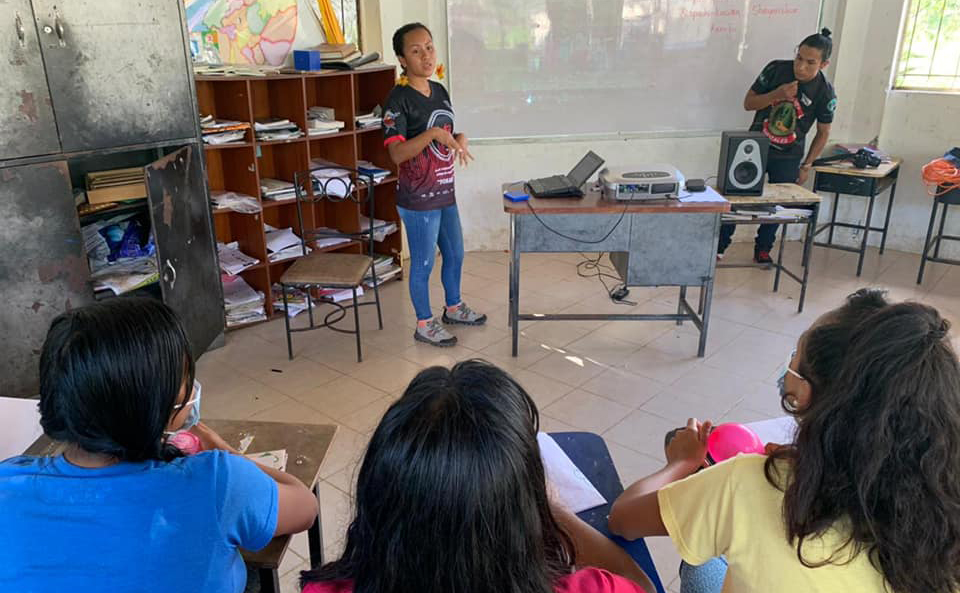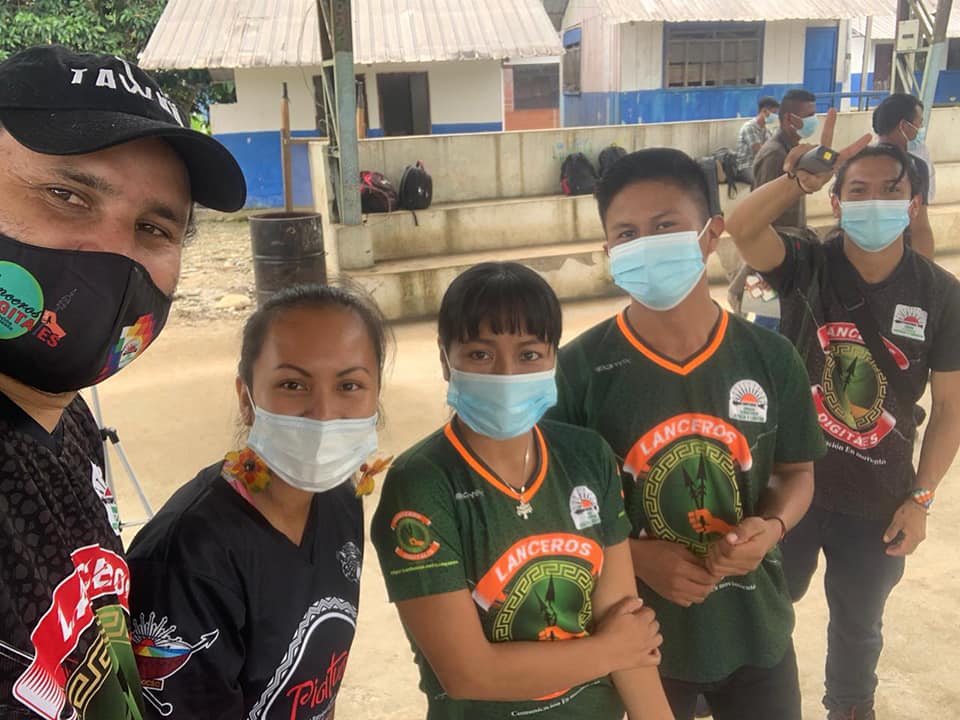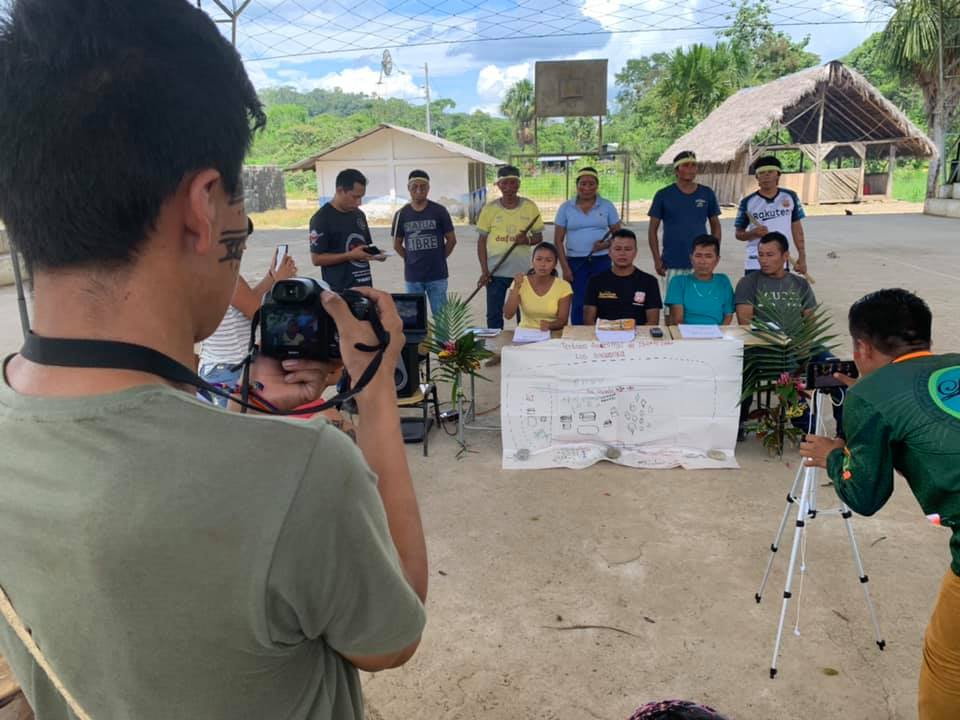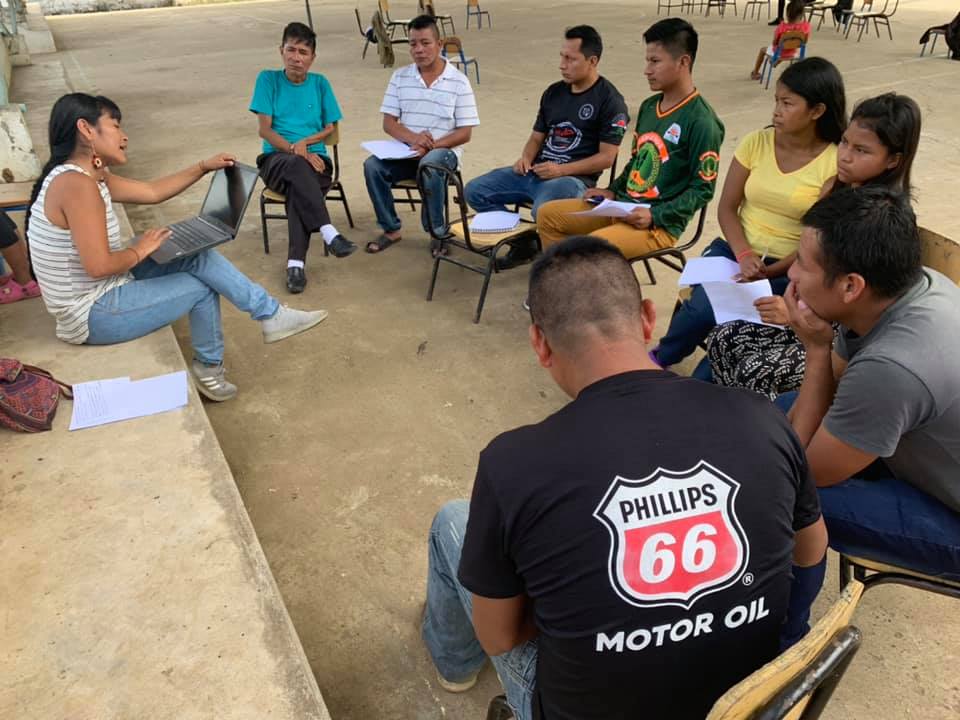With the goal of supporting the process to enhance the leadership capacities of the youths that are part of the global alliance of indigenous youth and local communities of the tropical forests, we visited the Amazon region of Ecuador at the beginning of 2021; where the incidence of indigenous organizations is increasingly important, almost a year after the start of the pandemic, due to the acceleration of the global climate crisis and the advance of extractivist industries.
The Amazonian nations maintain a constant struggle to protect their ancestral territories, biodiversity and culture, forming a common front of resistance against the oil industry, illegal logging and the advance of cattle farming that threaten the Amazon forests, vital to global climate balance. In this context, youth participation in organizational structures becomes a highly relevant issue.
In January, 20 young people from the Andwa, Achuar, Kichwa, Naoqui, Nashie, Shuar, Tena, Quijos and Waorani nationalities participated in a meeting organized by Verónica Inmunda, leader of the CONFENIAE youth groups, to addressed important issues such as the need to encourage the transfer of ancestral knowledge to new generations and the promotion of indigenous technicians to accompany community advocacy processes.
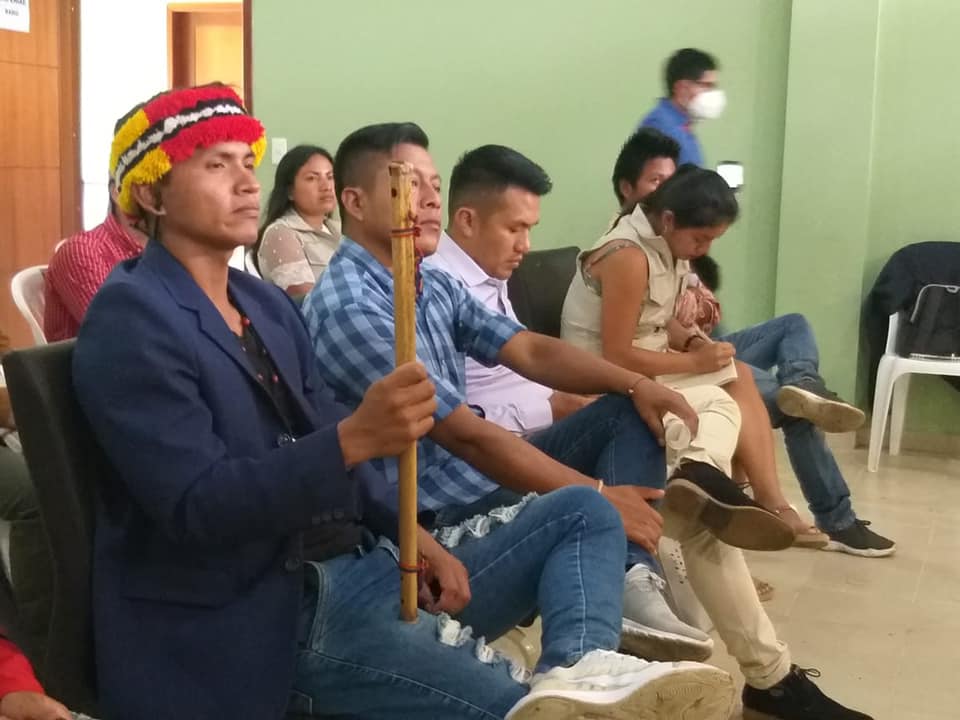
The meeting focused on proposals made by the young people: a strategy to manage academic scholarships, a plan to develop youth participation in organizational policies, and approaches to improve training and strengthening communication skills.
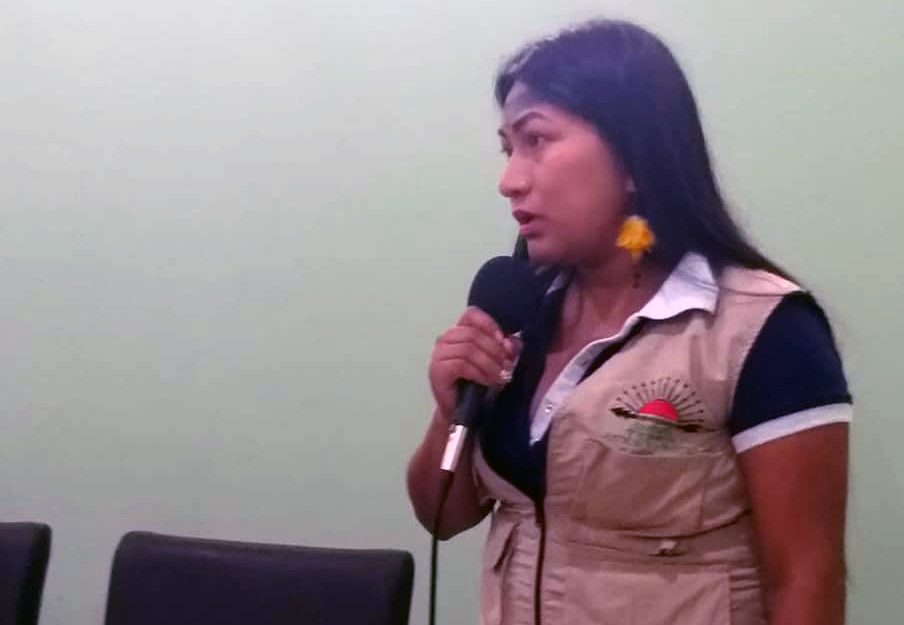
The leader Verónica Inmunda, organizer of the meeting, was elected as representative of the youths on September 8th 2020, during an assembly with the participation of the 11 indigenous nationalities: Quichua, Quijos, Shuar, Achuar, Huaorani, Siona, Secoya, Shiwiar, Andoas, Záparo and Cofán
Workshops, exchanges and culture
With the facilitation of the group Lanceros Digitales (digital lancers, young communicators who disseminate reality from their territories), a work day was organized which included a workshop on mining extractivism and the pandemic, as well as an exchange of experiences on community security, resistance strategies and how indigenous communities have faced the emergency health due to the contagion of covid-19.
As part of the workshop activities, Lanceros Digitales provided communication assistance to the Kichwa community of Ishkay Yaku, to share information on the threat posed by mining projects of the Terra Earth Resources company in their territory.
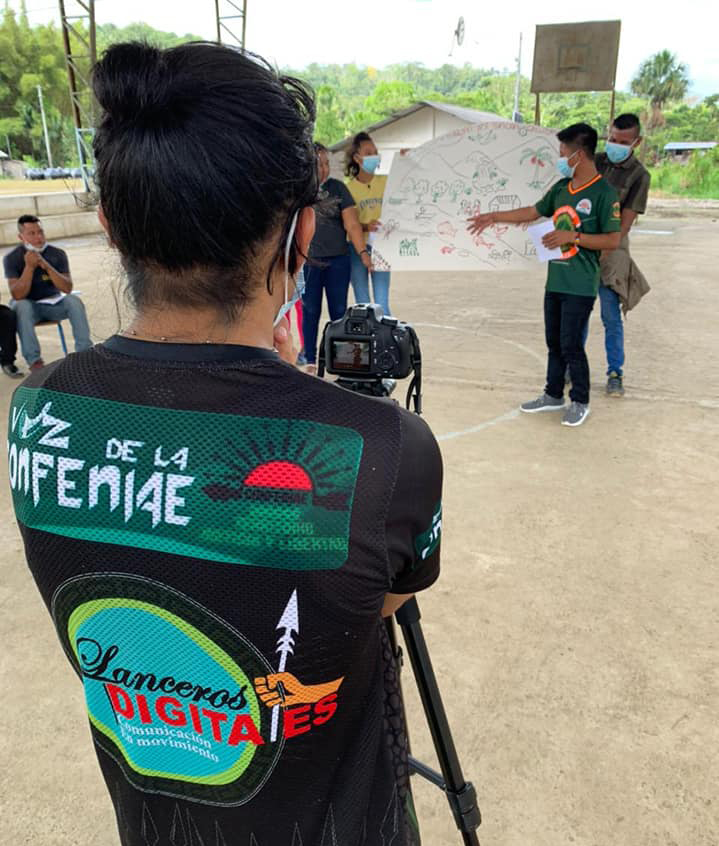
The cultural agenda of the visit included a traditional dance activity with young dancers from the San Jacinto community and Jawar and Shuar music. Jawar music seeks to inspire children to feel like tigers, strong and brave, to inspire them to defend their territories. Shuar music encouraged the participants to continue defending their territories despite the fact that this may lead to the shedding of their blood.
In the communities, traditional dance is being managed as a method of cultural recovery, through a project started during the pandemic. Professor Michel Tapuy learned to teach dance classes in the city and returned to her community to share her knowledge and encourage the involvement of more young people in cultural preservation.
The 23-day visit to the communities, during which we shared and forged new ties of participation, was carried out in coordination with the Confederation of Indigenous Nationalities of the Ecuadorian Amazon (CONFENIAE) and the Coordinator of Indigenous Organizations of the Amazon Basin (COICA).
Weaving Ties is an initiative of The Invisible Thread (TINTA) which promotes the exchange between indigenous and social organizations dedicated to the management and protection of forests in Mesoamerica, the Amazon and Indonesia
